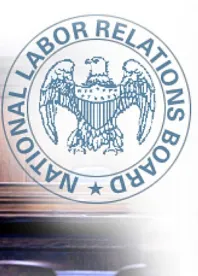The National Labor Relations Board has stated that it will report to a federal database all unfair labor practice complaints issued by its Regional Directors beginning July 1, 2016, in order to comply with “Fair Pay and Safe Workplaces” Executive Order 13673 (which has been called the “blacklisting” executive order).
The sweeping Executive Order, signed by President Barack Obama on July 31, 2014, requires employers bidding on government contract solicitations with an estimated value greater than $500,000 to report their previous three years of “violations” of 14 federal employment and labor statutes (and equivalent state laws) during the bidding process, with updates every six months if the contract is awarded. Federal agencies would consider the three-year record in determining whether to award future contracts, cancel existing ones, and demand remedial action to address a pattern of violations.
“Violation” has been defined in the Department of Labor’s proposed final guidance and regulations for E.O. 13673 to include agency determinations (extending even to agency prosecutors’ threshold determinations of “reasonable cause”), arbitral awards, and civil judgments. This broad definition, if implemented, has significant consequences for employers. For example, on July 1, 2016, the NLRB directed its field offices that whenever an NLRB Regional Director issues an unfair labor practice complaint against an employer, the NLRB will report the employer to a federal database to comply with E.O. 13673; an adjudicatory decision by the NLRB, following an evidentiary hearing before an administrative law judge and argument on the issues, is unnecessary for this purpose. Memorandum OM 16-23 states that NLRB field offices must request the employer to fill out and remit a business identification form, including the employer’s: (1) Commercial And Government Entity number; (2) Data Universal Numbers System (“DUNS”) number; (3) DUNS plus 4 suffix; and (4) Employer Identification Number or Taxpayer Identification. However, the NLRB will not send information to the database if the employer settles or otherwise resolves the matter before the issuance of the formal complaint. Accordingly, the NLRB can utilize the possibility of its submission of this information to the database as leverage in settlement negotiations with employers.
Generally, when a union or individual files a charge with the NLRB claiming an unfair labor practice by an employer under the National Labor Relations Act, the NLRB’s investigation of the charge would involve seeking a position statement, witness affidavits, or other evidence from the employer to refute the claim. If the NLRB Regional Office determines there is enough evidence to pursue the charge, a Regional Director will issue a formal administrative complaint against the employer. The issues presented in the complaint will then be tried before an Administrative Law Judge. In issuing Memorandum OM 16-23, the NLRB has taken the position that a mere determination that there is enough evidence to prosecute a charge, rather than a formal adjudication of an actual violation by the Board, is the point at which an employer’s alleged violation must be reported to the E.O. 13673 database.
The Department of Labor’s proposed final guidance and regulations to implement E.O. 13673 were sent to Office of Management and Budget for review and approval on May 4, 2016. There is no official date set for the guidance and regulations becoming final.
Employers facing actual or potential unfair labor practice issues should consult competent counsel early to evaluate the potential impact of the possible disclosure of prospective “violations” on future government contracting opportunities and weigh this, among other considerations, in determining whether early case resolution makes sense.





 />i
/>i
